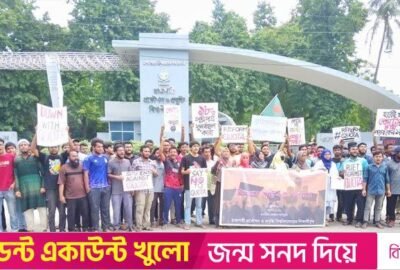Considering the importance of renewable energy in building a developed, prosperous, smart and sustainable Bangladesh, a special allocation of Tk 100 crore has been proposed to encourage its development and use.
Finance Minister Abul Hasan Mahmud Ali proposed this in the 2024-25 fiscal year budget in the National Parliament on Thursday (June 6).
The finance minister said that apart from power generation and transmission, the installation of smart pre-paid, smart meters has been undertaken with the aim of increasing transparency and accountability in this sector. Around 63 lakh pre-paid, smart meters have been installed so far. Bill payment, grievance redressal and new connection activities have been brought under automation to improve the quality of customer service.
He said, in the construction of Smart Bangladesh by 2041, emphasis has been placed on smart and modernization of the overall power generation, transmission and distribution system including the introduction of smart grid system.
The minister said, considering the importance of renewable energy in building a developed, prosperous, smart and sustainable Bangladesh by 2041, I am proposing a special allocation of Tk 100 crore to encourage its development and use.
Highlighting the development of the government in the power sector, he said that the government has given utmost importance and priority to the development of the power sector and is implementing various projects in its production, transmission and distribution. In the meantime, according to the government’s promise, 100% of the people have been brought under the power facilities and plans have been adopted to increase the power generation capacity to 40 thousand MW by 2030 and 60 thousand MW by 2041.
He also said that there is a plan to increase the amount of power transmission lines to 24 thousand circuit kilometers by modernizing the grid. Besides, the Integrated Energy and Power Master (IEPMP) has been formulated as a program for preparing the integrated master plan for the power and energy sector.
The finance minister said in the budget speech that the power generation capacity was only 4 thousand 942 MW in 2009, which has now increased to 30 thousand 277 MW (including captive and renewable energy). Currently, 27 power plants with a capacity of 9,144 MW are under construction. Per capita power generation increased from 220 KWh to 602 KWh.
He said that in the last 15 years the total amount of transmission lines has increased to 15 thousand 246 circuit-kilometers. The total amount of distribution lines stands at 6 lakh 43 thousand km. Electricity distribution system losses have decreased from 14.33 percent in 2009 to 7.65 percent in 2023.
The minister said, besides, as part of the long-term master plan of power generation, a plan to import about 9,000 megawatts of electricity from neighboring countries has been adopted under the regional and sub-regional cooperation programs and a target of 40 percent of the total power generation from renewable energy has been set.
He said that 1,160 megawatts of electricity through grid interconnection and 1,600 megawatts of coal-based power plants are being supplied from India to the national grid of Bangladesh. Rooppur nuclear power plant construction project at Ishwardi in Pabna is under implementation.
After its implementation, a total of 2,400 MW electricity will be connected to the national grid in two units, which will accelerate economic development as the main driving force of the country’s economy, the minister said.
NS/MKR






